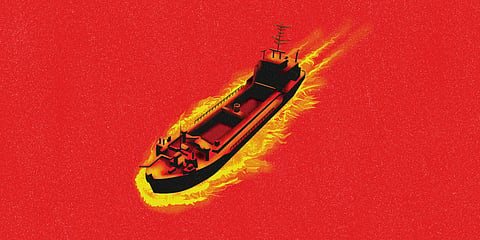China’s Indian Ocean?
Two decades ago, there was 'The Clash of Civilizations', American political scientist Samuel P Huntington's big thesis about the next global conflict arising out of a difference in cultures, rather than political ideology or economic vision. "Nation states will remain the most powerful actors in world affairs, but the principal conflicts of global politics will occur between nations and groups of different civilizations… The fault lines between civilizations will be the battle lines of the future," his famous essay in Foreign Affairs read. Huntington's hypothesis was oft-repeated when the United States initiated unilateral wars in Afghanistan and Iraq, wars that have delivered few results apart from furthering the conflict in West Asia.
In his latest book The Costliest Pearl: China's Struggle for India's Ocean, journalist Bertil Lintner borrows another such hypothesis – the Thucydides' Trap – to argue that China's ambitions in the Indian Ocean will put it on a collision course with several powers in the region, not least India, which, he says, has always considered the Ocean its own 'lake'. The Thucydides' Trap, put forth by Harvard political scientist Graham Allison, posits that "when a rising power threatens to displace a ruling one, the most likely outcome is war." According to Allison, this has been true in 12 out of 16 such instances in the last 500 years.

